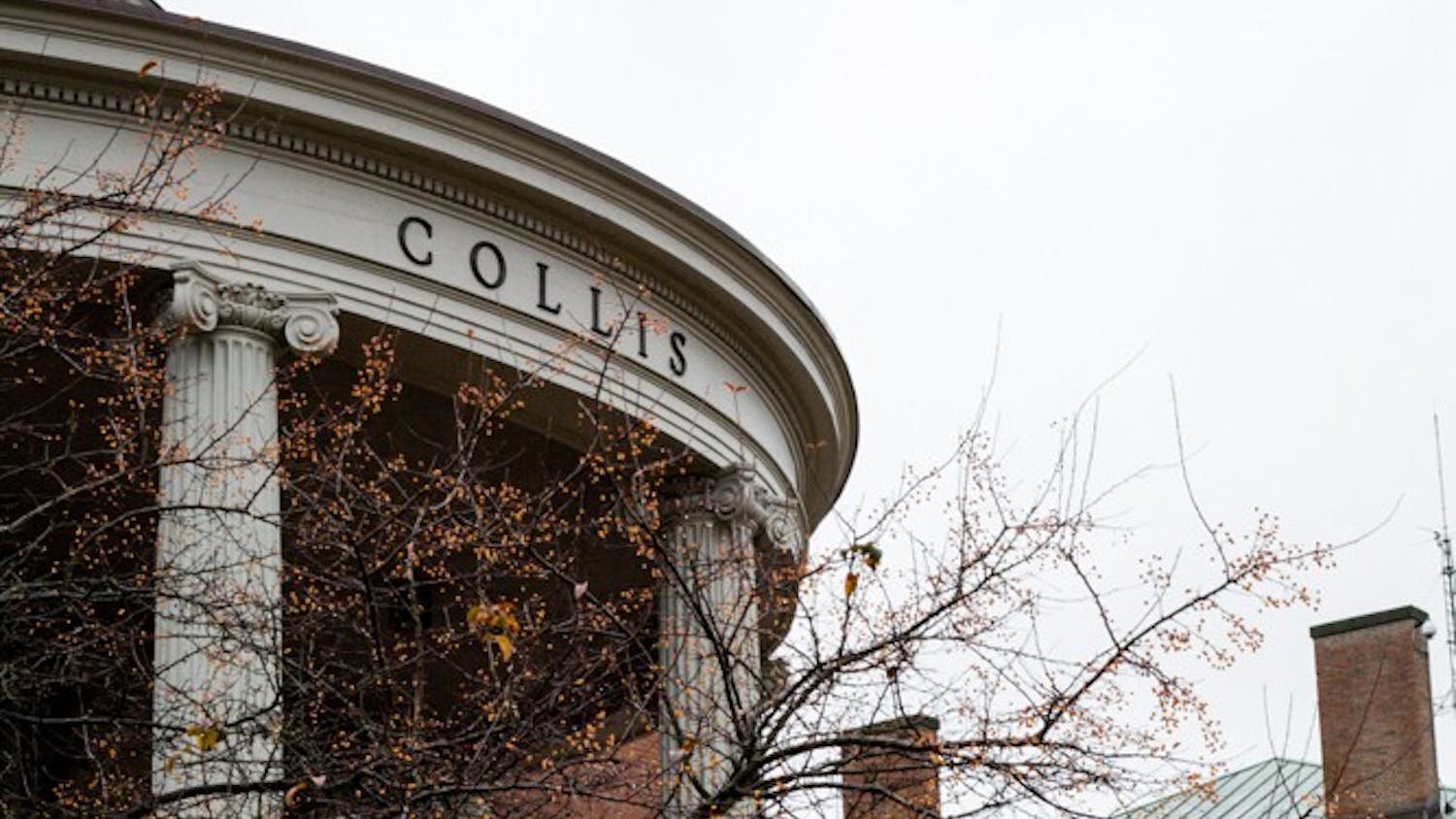Modern dairy farmers in the United States face a complex economic market that does not reward them sufficiently for the work that they do, Kirk Kardashian, author of recent book "Milk Money: Cash, Cows and the Death of the American Dairy Farm" and senior communications writer at the Tuck School of Business, said in a lecture in Feldberg Library Thursday afternoon.
In the mid-2000s, the American dairy industry was doing relatively well, benefiting in part from a drought in Australia and New Zealand regions that normally produce much of the world's milk. However, in 2009, a series of events including an increase in grain prices, a melamine scare in China and the global recession caused demand to drop dramatically. Many American dairy farms were left with excess cows and plummeted into debt, Kardashian said.
Today the price of milk is strong, but costs to farmers are still high, he said. With Congress' recent extension of the farm bill, the dairy industry's hopes for reform were put on hold, he said.
Milk prices which are regulated by the United States Department of Agriculture are determined based on supply and demand and not on the cost of production, according to Kardashian. Therefore, it is not unusual for milk prices to drop below costs, he said.
When prices decrease, farmers begin producing more milk, thus driving the price down further, he said. America has had a "chronic oversupply problem" for years and the dairy industry is trapped in a "vicious cycle," he said.
Farmers do not receive a fair share of the profit for the milk they produce, Senator Bernie Sanders, I-Vt., wrote in his introduction to Kardashian's book.
"When the price of milk drops, prices to consumers don't drop: the middlemen and retailers get wealthy," Sanders wrote. "Farmers, especially modest-size family farms like those we have in Vermont, get little."
Between 1970 and 2006, the number of dairy farms in the U.S. decreased by 88 percent, according to Kardashian. While both large and small dairy farms are struggling in today's environment, smaller farms face more difficulties, he said. Most of the farms that have closed recently were small farms with between 30 and 200 cows.
"When margins are thin, bigger farms will win," he said.
Upper Valley residents are fortunate because they have the unique option of purchasing milk from a number of different local dairy farms, Kardashian said. Many Americans in the Midwest do not have this sort of flexibility, he said. He said that consumers can demonstrate their preferences for farming methods with their purchasing decisions.
The industry is extremely important to Vermont, where there are approximately 1000 dairy farms, he said in an interview after the lecture. There are 130 farms in New Hampshire.
Kardashian said he became interested in the topic in 2009, at a time when the American dairy industry was in a crisis. After hearing news reports about farmers going out of business, Kardashian said it was a personal connection that drew him to investigate the story.
He began bringing his daughter to day care at a "quintessential" Vermont dairy farm, and was suddenly able to "put a face to the statistics," he said.
Approximately 30 students, faculty, staff and community members, with a diverse range of interests in the topic, attended the lecture and engaged Kardashian and one another with questions and comments throughout the talk.
James Maroney, a former dairy farmer from Leicester, Vt., said it is extremely difficult for small farms to compete with large industrial operations, especially if they are not producing organic milk, for which consumers might be willing to splurge.
Religion professor Catharine Randall said she was impressed by the amount of discussion Kardashian's lecture generated and the diversity of viewpoints represented in the audience including Maroney's experience and the hope that milk would remain affordable for consumers.
Randall, a strong advocate for animal rights, said that it is important to consider how animals are treated when discussing the farming industry. Industrial farms treat animals as production units and not as living entities and the earliest were modeled on concentration camps, she said.
Tuck employee Rena Mosteirin, who organized the event, said she has always been a supporter of family farms and that Kardashian's book helped her gain a better understanding of farmers' current situation. Mosteirin said she hopes to see more campus dialogue on local produce.
"If students organize and put pressure on the College to provide local milk the same way we have local apple cider that would be very helpful to local milk producers," she said.
The lecture provided an "eye-opening" introduction to the current state of the American dairy industry, according to Kristin Lam '14, who is currently taking Randall's religion class titled "Animal Rights in Religion, Film, and Literature."
"I'm from the West we go to Safeway and buy our milk, and I never really thought about farmers, and honestly didn't know much about their struggle," she said.



